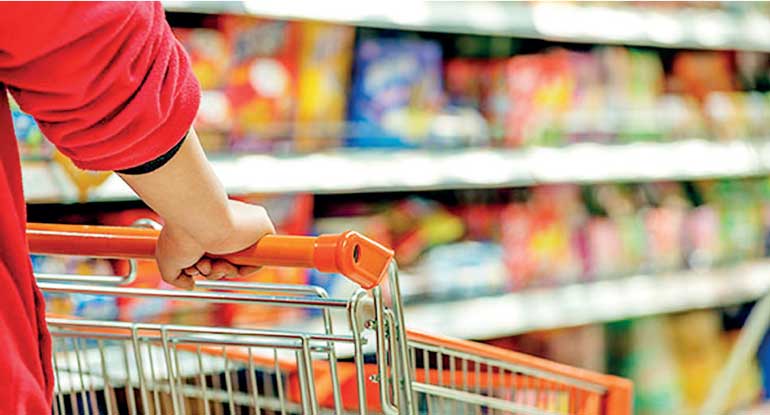Sunday Feb 22, 2026
Sunday Feb 22, 2026
Thursday, 31 December 2015 00:00 - - {{hitsCtrl.values.hits}}

Consumer
The festive season has emerged and the citizen is testing the buying power in purchasing consumer items. A consumer is any actual or potential user of any goods or services made available for consideration by any trader or manufacturer (s75 of The Consumer Affairs Authority Act). This shows that every citizen is a consumer and needs protection from the State to protect the consumer against unfair trade hazardous to life and property of consumers, adequate access to goods, and to seek redress against unfair trade practices (s 7 of the Act no of 2003).
Is the consumer the king – and powerful?
In theory, yes but in practice, it may not be so; especially in Sri Lanka where the consumer is not organised as in other parts of the world. Consumer Day falls on 15 March and the World Consumer Federation has started the agitation throughout the world claiming the legitimate share for the consumer as Kennedy’s statement in 1983 that – the consumer includes us all – “the largest economic group affecting and affected by almost all public and private economic decision yet they are the only important group whose views are often not heard”. In other parts of the world, the consumer is restricted from becoming unfair by the government, as well as the strong lobbying of powerful organisations in maintaining the quality, standards, price and consumer rights of return goods, and maintaining standards by the trade, manufacturer and the trader. Sri Lanka is full of adulterated and poisonous food and other consumer goods, unhealthy food chains and goods adulterated and downgraded with no restrictive conditions. Unhealthy food chains are thriving and there is no proper control of the quality and price of the consumer items expected to be monitored by the main regulator, the Consumer Affairs Authority.
Powers of the Consumer Affairs Authority as the main regulator
It is established in place of the Fair Trading Consumer Act no. 1 of 1987 and Price Control Act 1 of 1987 for promotion of effective competition and protection of the consumer with a blend of UK, Australian and Western modelled concepts, creating a main regulator to regulate trade under S9 of the Act, which has power to undertake studies, issue directions, restrict selling above market price, determine standards, inquire complaints, enter into agreements, deal with offences such as refusal to sell, hoarding goods, investigations publication, prevent misleading , deceptive conduct and many more powers and expectations. Due to the abolition of the price control under the Price Control Act, the new concept of price making was introduced where every trade is expected to exhibit the price mark and maintain standards of the items (S29). It is left to the consumer to judge the effectiveness of the enforcement mechanism in maintaining the price and the standards of the consumer items. Whether the CAA is competent to beat the cost of living, or if it is a toothless organisation, is a matter the citizen will be deciding on based on the performances of the organisation.
Beat cost of living
The cost of living is a relative term which depends on conditions, environments, and jurisdictions. Rarely the prices of consumer articles are receded, but the salary and income increases from time to time. Price of rice or bread is not static, but the consumer is ready to adopt the price fluctuations. In the west, a major portion of the salary or income is utilised for accommodation when the food items are generally affordable, which is not the case in Sri Lanka. In the UK, one could be comfortable living with the minimum wages and in addition government subsidiaries where necessary. In Sri Lanka, though salary and income is less for many, traditional food items such as jackfruit, leaves, and village grown items (available in “Polas” – street markets in towns too) assist consumers to make ends meet comfortably. If the consumer is sharp and careful, it is easy to beat the cost of living provided that the cost of a mobile phone, tuition and extravagance is restricted. In short, one should know (a) when to buy (b) where to buy, (c) how to buy and (c) what to buy. In England the apple at Selfridges – the most expensive food chain – could be purchased at the street market near the store for a lesser price. In Sri Lanka, street markets are plenty and food can be carefully purchased and stored to be used later. Consumers make the biggest blunder by eating out in food chains with unhealthy oily food and colas inviting long term diseases. Consumer should be trained for healthy food at identified outlets. It is an exercise one should practice.
Complains to public bodies and to be organised is your civic duty
Ideally, the CAA is expected to entertain complaints on the phone, via net and all over the country. This extends to all consumer items and to services as well. In other parts of the world the consumer is so well organised that the trader is under pressure and the control of the consumer. Media plays a vital role in this matter. In the UK when cola company used the water from Thames River, it is the media that came forward as in the Bopal case in India to teach unfair trade practices of multinational companies. In Sri Lanka, the CAA is expected to organise a consumer federation to assist the consumer. It is the duty of the NGOs to take the mantel forward without wasting time for human rights situations in Sri Lanka which maintains the highest standards. It is time for the citizens to organise themselves to beat the cost of living and to lead a careful, systemic, planned, organised life with other fellow citizens.
Careful during the festive season
It is illegal to perform bogus sales and overprice the consumer items especially during the festive season. Consumers have no right to demand price reductions but they have the right to purchase quality and healthy goods. Citizens may complain to the 1919 services, CAA and the Board of Standards for quality and price of consumer items. A joint exercise should be launched by the CAA organising the trader, manufacturer, industrialist and the citizen to work together is a competitive but a friendly environment to beat the cost of living and for quality and health consumer items at a reasonable price.
Way forward
It is the right of the citizen and the duty of the State to ensure the consumer should be able to purchase quality items at a reasonable price, and it is his/her duty to look for healthy food in the interest of the citizen.
The United Nations too have recognised the right to satisfaction and ensure basic needs, safety, information, a chance to be heard, redress, consumer education and a healthy environment, as a right and a requirement to be facilitated for the consumer/citizen by the State. It is the duty and a statutory requirement of the main regulator, CAA, to organise consumer organisations and to work on a joint project with the consumer, state, trader, manufacturer and the citizen for a fair and reasonable system of trade and business for a better life for the consumer. Consumers should be vigilant and smart, the trader should be fair and reasonable and the State should be efficient for a better day for the consumer/citizen.
Articles by Sarath Wijesinghe –(1) Sri Lanka Guardian on World Consumer Day on 19.01.2014, (2) Sunday Business Times – Lead a simple life to beat cost of living 25.03.2012 (3) Rice price and cost of living on 20.04.2008 – Observer (4) Measure to bring down cost of living – Observer 15.07.2007.
(The writer is the former Chairman of the Consumer Affairs Authority, former Ambassador to UAE and Israel ,Email: [email protected] .)